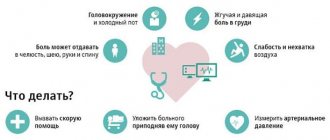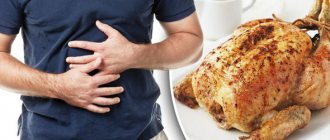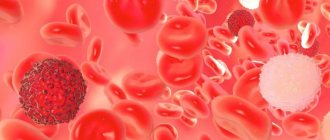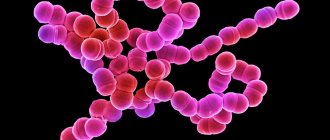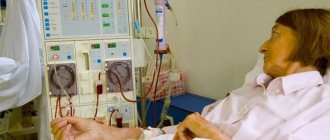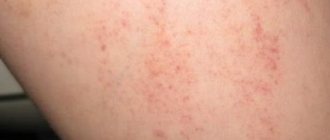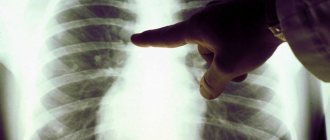Antacids are drugs that must be taken to normalize the digestive system after poisoning. This medicinal group does not remove toxins from the body; its purpose is to restore and soothe the irritated mucous membrane, which during intoxication is subject to the formation of inflammatory processes. Antacids include Maalox, Phosphalugel, Venter, Almagel.
To quickly stop the clinical picture of poisoning and normalize the condition after intoxication, an integrated approach is needed. Drinking plenty of clean, boiled water, drinking teas and decoctions based on medicinal herbs, and timely taking sorbent medications will help quickly stabilize the functioning of the digestive system.
source
Causes of poisoning
Food intoxication causes all sorts of disruptions in the functioning of systems and organs that occur as a result of the ingestion of poison or toxin. The most common causative agents of the disease include:
- Bacillus cereus, which lives in any perishable products stored at temperatures above 6 degrees.
- Staphylococcus aureus, capable of actively reproducing at room temperature. This microorganism most often prefers to live in fermented milk products, sauces, pates, cakes, and salads.
- Clostridium perfringens, which enters the body from poorly processed fish, meat or poultry.
Pesticides used to treat vegetables and fruits, as well as natural toxins contained mainly in poisonous berries and mushrooms, also pose a great danger. Low-quality alcohol and vinegar can also cause intoxication of the body.
Symptoms of the disease
There are several signs that a toxic component may enter the body through food. They can manifest themselves all at once, or only some of them. The most common ones include:
- single or repeated vomiting;
- nausea of varying intensity;
- intestinal cramps;
- loose stools;
- dehydration of the body, manifested by lack of urination, dry mucous membranes and skin;
- temperature increase;
- decreased blood pressure;
- fainting, disturbances in the functioning of the central nervous system.
These symptoms may vary somewhat depending on the toxic agent. For example, with bacterial poisoning, a person will experience nausea accompanied by vomiting, pain in the epigastric region, and diarrhea. The viral pathogen can cause fever, shaking, stomach cramps, vomiting and fever. Chemical exposure is accompanied by severe sweating, vomiting, diarrhea, dizziness, pain around the eyes and drooling. And when infected with such a dangerous microorganism as botulism, damage to the central nervous system is observed, accompanied by vomiting, dry mouth and severe weakness.
Read also Treatment of intoxication syndrome
If you suspect food poisoning, you should consult a doctor immediately if possible. If for some reason this cannot be accomplished, then mandatory gastric lavage is carried out, followed by taking sorbent drugs and agents that help restore the water-salt balance in the body.
After eliminating the main symptoms of intoxication, it is important to organize proper dietary nutrition, since the disease provokes disruptions in the gastrointestinal tract. In addition, in order to get rid of negative consequences, restorative measures are carried out, involving the use of multivitamin complexes.
Medicines
Medicinal effects on the body that has suffered poisoning are not required in all situations: mild food intoxication only involves taking sorbents in order to quickly get rid of the remains of harmful substances. If the patient's condition is severe, stronger symptomatic medications may be needed, but it is advisable to select them with a doctor. Gastroenterologists use the following groups of drugs:
- Adsorbents (Enterosgel, Atoxil) - bind and remove toxins, are used to treat children and adults, but are not prescribed for fever. Be sure to space it out with other medications (for 1-2 hours).
- Rehydrants (Regidron, Acesol) - restore water and electrolyte balance, used for any poisoning. Administration is oral or infusion, depending on the patient’s condition.
- Painkillers (Drotaverine, Duspatalin) are antispasmodics that are taken only for severe acute pain that accompanies attacks of diarrhea.
- Antiemetics (Metoclopramide, Cerucal) - doctors call vomiting a natural defense reaction of the body that helps get rid of toxins, but if the attacks are too intense, it can be blocked with medications.
- Antidiarrheals (Kaopectate, Loperamide) - used only for frequent attacks of diarrhea that cause severe dehydration.
- Antipyretics (Ibuprofen, Paracetamol) are used rarely, mainly in young children and only when the patient knows that the temperature is not caused by an intestinal infection.
- Probiotics (Linex, Bionorm) are used at the final stages of treatment to restore the gastrointestinal microflora.
From poisoning and vomiting
The pharmacological group of antiemetics includes several types of drugs that affect nervous regulation. They mainly block dopamine, serotonin, and histamine receptors, reducing the excitability of the vomiting center, or work as local anesthetics. Cerucal is considered a popular and effective antiemetic drug for poisoning: it works on metoclopramide (10.54 mg per tablet and 5.27 mg per 1 ml of solution), used orally or intravenously. Key points:
- Pharmacological action: central blocker of dopamine (D2) receptors and serotonin, causes inhibition of the trigger zone of the vomiting center.
- Indications: hiccups, nausea, vomiting of any origin, gastroesophageal reflux disease, gastric atony, gastric dyskinesia, gastric ulcer.
- Dosage: 1 tablet for adults half an hour before meals, washed down with warm water, up to 4 times a day (for frequent bouts of vomiting). Children over 14 years old should take no more than 3 tablets per day. The intravenous solution is administered slowly up to 3 times a day, 10 ml at a time.
- Contraindications: bleeding in the gastrointestinal tract, intestinal obstruction, extrapyramidal disorders, age under 2 years.
- Side effects: urticaria, stool disorders, dry mouth, tachycardia, fluid retention, drowsiness (with frequent use).
An important advantage of Cerucal and other drugs containing metoclopramide (Metamol, Metoclopramide, Reglan) is the rapid effect on nausea and vomiting of any etiology, excluding vestibular - after half an hour the condition returns to normal. Less commonly, doctors prescribe Osetron, which uses ondansetron, as an antiemetic drug. Unlike metoclopramide, this substance does not cause an increase in prolactin levels, but its mechanism of action on vomiting is not fully understood. Instructions for use:
- Indications: nausea and vomiting of postoperative origin or caused by taking cystostatic drugs, radiation therapy.
- Dosage: daily dose – 8-32 mg for adults, it is advisable to take no more than 8 mg at a time.
- Contraindications: pregnancy, age up to 2 years (tablets) and up to 12 years (large dosages), lactation.
- Side effects: headache, arrhythmia, constipation.
Medicines for poisoning and diarrhea
In order to relieve diarrhea, attacks of which occur more often than 2-3 times a day, you can use decoctions of astringent herbs or drugs with antidiarrheal properties, which are based on loperamide, attapulgite, racecadotril, smectite. Some of them are also sorbents. Mostly in case of poisoning, gastroenterologists advise taking medications based on attapulgitis, which include Neointestopan (630 mg per 1 tablet):
- Pharmacological action: adsorption of liquid and pathogenic microorganisms with the toxins they produce in the intestines, a general reduction in intoxication, normalization of intestinal flora, thickening of liquid contents.
- Indications: acute diarrhea due to food poisoning, imbalance of intestinal microflora.
- Dosage: initial dose – 4 pcs. after defecation, then 2 pieces, washed down with warm water. The daily dose does not exceed 14 pcs. for adults. In children 6-12 years old, dosages are reduced by 2 times.
- Contraindications: fever, intestinal obstruction, parasitic diarrhea, children under 3 years of age.
- Side effects: constipation.
Kaopectate is similar in pharmacological action to Neointestopan, since it is also based on attapulgite, but 1 tablet contains 750 mg of the active substance, which makes this drug more effective (in terms of speed of action). Unlike Neointestopan, Kaopectate is also available in the form of a suspension, where the same concentration of the active ingredient (750 mg) is achieved when taking 15 ml. Indications and contraindications are identical to those described above; you only need to pay attention to the dosage:
- Adults: 2 tbsp. l. suspensions or 2 tablets up to 6 times a day, after each bowel movement.
- Children 6-12 years old: 1 tbsp. l. suspensions or 1 tablet up to 6 times a day.
- Children under 6 years old: no more than 1 tsp. suspensions up to 6 times/day.
Painkiller
If the acute stage of intoxication is accompanied by severe pain, causing suffering during the urge to defecate and between them, doctors allow the use of antispasmodic drugs. The most famous remedy of this type is No-shpa (analogs are Drotaverine, Spasmol). It works on drotaverine, is a myotropic antispasmodic, relaxes the intestinal muscles, is allowed in case of intolerance to M-anticholinergics. Features of use:
- Indications: spasms of smooth muscles of the gastrointestinal tract and urinary tract.
- Dosage: 1-2 tablets no more than 3 times a day.
- Contraindications: hypotension, lactation, pregnancy, renal, heart and liver failure.
- Side effects: decreased blood pressure, dizziness, arrhythmia, skin reactions.
Less well known are antispasmodics containing mebeverine (Duspatalin, Sparex), prescribed only for abdominal pain. They also have a myotropic effect, but do not cause a drop in blood pressure or affect normal intestinal motility. In addition to them, the anticholinergic Platifillin, used for spasms of smooth muscles of the abdominal organs and vascular spasms, or the combined drug Spazmalgon (containing metamizole sodium, pitofenone hydrochloride and fenpiverinium bromide) can be used as painkillers for poisoning:
- Pharmacological action: analgesic, antispasmodic.
- Indications: gastroenteritis, colitis, unspecified pain in the abdominal area.
- Dosage: up to 6 tablets per day, 1-2 per dose. After eating, drink water.
- Contraindications: heart, liver, kidney diseases, pregnancy, lactation, age under 6 years.
- Side effects: headache, tachycardia, urticaria.
Sorbents
The most important part of the treatment of poisoning is taking adsorbent drugs, which help remove toxins from the body, but they are drunk only in the absence of intense vomiting. Other medications can be taken no earlier than 2 hours later, since otherwise, in addition to toxins, beneficial substances will also be captured. The safest and most accessible adsorbent is white or black activated carbon (and drugs based on it: Carbactin, Sorbex), but more often gastroenterologists recommend Polysorb MP, on silicon dioxide:
- Pharmacological action: sorption and detoxification, binding and removal of exogenous and endogenous toxins, pathogenic bacteria, food allergens, heavy metal salts.
- Indications: acute and chronic intoxication of any etiology, intestinal infections, poisoning with toxic substances.
- Dosage: calculated individually, 0.1-0.2 g of powder per kg of weight with a frequency of up to 4 times a day, prepare the suspension exactly before use. Take the medicine 1 hour before meals.
- Contraindications: exacerbation of peptic ulcer, intestinal atony, bleeding in the gastrointestinal tract.
- Side effects: allergic reactions.
The disadvantage of Polysorb is the powder format, which requires dilution (the required amount is dissolved in 50-100 ml of water). Similar actions should be performed with the drugs Smecta and Neosmectin, which work on smectite and, in addition to adsorption, perform an antidiarrheal function. Paste-like Enterosgel (based on polymethylsiloxane polyhydrate) is more convenient to use:
- Pharmacological action: sorbs and removes medium molecular toxins, has a detoxification effect.
- Indications: acute and chronic intoxication of any etiology, intestinal infections, poisoning with toxic substances.
- Dosage: 22.5 g (1.5 tbsp.) with a frequency of 3 times/day. Daily dose – 67.5 g. Drink by stirring in warm water.
- Contraindications: intestinal atony.
- Side effects: nausea, constipation.
Body cleansing procedure
Treatment for any food poisoning should begin with cleansing the patient’s body. These manipulations are needed to free the stomach from food debris that caused the disease and the resulting toxins. Even if there is severe vomiting, we cannot talk about complete cleansing of the body.
Washing is carried out using a special solution. To do this, use potassium permanganate diluted in water. The solution should be pale pink in color so as not to burn the mucous membranes of the digestive tract. As an option, you can also use regular soda, a tablespoon of which must be diluted in two liters of boiled water.
The procedure is performed in this order:
- Drink about four hundred milliliters of the solution in one gulp.
- Induce a gag reflex. To do this, just press on the root of the tongue with your fingers.
- Repeat the manipulations several times.
During the first rinsing, the main volume of food is removed, but the procedure is stopped only after the emerging liquid becomes completely transparent and clean.
If there is no urge to vomit, most likely the product that caused intoxication has already moved to the intestinal area and gastric lavage will be ineffective in this case.
After a toxic substance enters the intestines, the body begins to get rid of it through frequent loose stools. When providing assistance with food poisoning at home, in this case, it is important to realize that diarrhea is a protective reaction. It is a mistake to try to stop this phenomenon, because diarrhea turns out to be the fastest way to get rid of toxins. When feces are retained, poisons continue to be absorbed into the blood, thereby worsening the patient’s condition. Antidiarrheals can only be prescribed by a qualified doctor.
In the absence of diarrhea, a cleansing enema or taking laxatives helps to induce it. For such purposes, you should not use folk remedies to avoid worsening the course of the disease.
Non-medicinal drinks
Decoctions of medicinal plants help well, they supply the body with useful substances and have a beneficial effect on the functioning of the digestive system. Traditional methods of treatment must be combined with taking other drugs.
A person who has been poisoned by mushrooms should brew 2 tbsp in 0.5 liters of boiling water. l. licorice. Keep on low heat for 10 minutes, then leave for 15 minutes, strain, and cool. Drink half a glass three times a day.
Herb St. John's wort
A person who has been poisoned by expired food should mix chamomile, peppermint, St. John's wort, centauria and juniper berries in equal proportions, pour in 4 tbsp. l. mixture 1 liter of boiling water and cook over low heat for 10 minutes. Cool, strain, drink a glass three times a day.
If your stomach is swollen, tea made from chamomile and lemon balm decoctions taken in equal proportions will help. You should drink it hot, 3 glasses a day.
Use of sorbents
After washing the body, it is necessary to introduce sorbent preparations that will absorb harmful substances in the stomach and will soon come out.
The most common sorbent, which can be found in the medicine cabinet of almost any family, is activated carbon. This medicine is taken at the rate of one tablet for every ten kilograms of weight. It is either swallowed whole, washed down with plenty of liquid, or diluted in boiled water. It is important to understand that it is very difficult to give this drug to a small child, unlike an adult. Therefore, in this case, you will have to use another means.
Read also: Forced diuresis: can it be used at home?
Modern sorbent drugs include:
- polysorb;
- smecta;
- polyphepane;
- enterosgel;
- attapulgite;
- lactofiltrum.
The listed products do an excellent job of removing toxic substances in case of poisoning. What to take at home in each specific case depends on the preferences of the person or the attending physician. They are used during periods without vomiting and between the use of other drugs, since they can reduce the effectiveness of medications. Contraindications include the presence of stomach ulcers and high fever.
What else can you take?
When providing first aid, in addition to water, the patient is offered to drink activated carbon (1 tablet per 10 kg of weight). In case of acute poisoning, it is recommended to take:
Sorbents – for removing toxins, cleansing the intestines and restoring after intoxication. The most effective drugs are Polysorb, Smecta, Enterosgel.- Rehydrants – restore electrolyte deficiency. The best are Litrozol, Oralit, Laktosol.
- Antispasmodics – eliminate pain. Drotaverine, No-shpa, Spazmolgon quickly relieve spasms in the intestines.
Important! Taking medications should be agreed with your doctor. Therefore, before his arrival, it is advisable to give him the solutions mentioned above to drink to alleviate the condition of the victim.
Features of restoring water-salt balance
Although diarrhea and vomiting are necessary during poisoning to remove toxins from the body, they also help remove fluids and vital substances. The volume of the latter must be constantly replenished by offering the patient plenty of fluid. Non-carbonated mineral water copes well with this task.
When understanding the question of what to take in case of food poisoning to maintain electrolyte balance, it is worth mentioning a solution that is prepared from table salt. To do this, add a teaspoon of salt and three tablespoons of sugar to a liter of boiled water. This mixture is consumed in a volume of at least two liters per day, an hour before or an hour after a meal, so that gastric juice has time to be produced.
The use of medications such as Regidron or Oralit, which contain glucose, salt and trace elements, will also help restore the mineral balance. It is recommended to alternate this drink with weak sweet tea, rosehip or chamomile decoction.
ethnoscience
Various decoctions based on medicinal herbs, berries, enriched with vitamins and minerals will help cope with the consequences of intoxication.
The main recipes that are used to relieve the symptomatic picture of poisoning, restore the digestive process and normalize the general condition are as follows:
- two tablespoons of dill are poured into 500 ml of boiling water;
- grate ginger root, pour boiling water (300 ml of boiling water per teaspoon of ingredient);
- Mix dried chamomile inflorescences with cream (500 ml of cream per 3 tablespoons of chamomile), put on fire, bring to a boil. Used in case of poisoning due to smoking a large number of cigarettes;
- clover (5 parts), horsetail (5 parts), oak bark (2 parts) – mix, add 1 liter of water, bring to a boil;
- dandelion roots or leaves – chop, add water, bring to a boil and boil for 5 minutes. Cool and strain before use. Dosage – 2 tablespoons of the ingredient per 1 glass of water;
- licorice root – chop, boil, strain the resulting decoction before use.
Mineral water for poisoning
In order for a decoction of medicinal herbs to be beneficial and not become useless or cause harm, you must take the drink correctly:
- drink in small, if possible, equal portions at equal intervals;
- the average dosage of one serving is 1-3 tablespoons (if there are no other recommendations for intake in the recipe);
- To obtain a pleasant taste, you can add honey (not sugar);
- To obtain a positive effect on the body, it is necessary to take the decoction not only during the onset of acute symptoms of poisoning, but also over the next few days.
Prevention of food poisoning
Drug approach to treatment
After cleansing the body of toxic substances, restorative therapy is carried out aimed at normalizing the intestinal biocenosis. For this, it is recommended to take special probiotics. The most common of these types of drugs are “Linex”, “Hilak Forte”, “Bionorm”.
Periodically, during intoxication, the temperature may rise, sometimes to very high levels. For food poisoning, there are no special antipyretics. Usually the well-known paracetamol and ibuprofen are prescribed, which are taken for any other conditions with an increase in body temperature. However, when vomiting, it is recommended to use medications in the form of suppositories.
It is important to remember that any antidiarrheal, antiemetic, painkillers, as well as antibiotics are prescribed exclusively by a doctor. Self-medication can lead to disastrous results.
Drinking regime during and after poisoning
Vomiting and diarrhea are the main signs of poisoning, which can torment the victim for days. During this period, it is extremely important to ensure adequate drinking regimen. First of all, drinking plenty of plain boiled water at room temperature will help quickly get rid of toxic substances in the intestines.
The more water a person drinks between vomiting, the faster the stomach will clear, and the victim’s condition will quickly return to normal. A saline solution (to prepare a glass of water, dilute a teaspoon of salt) is used to induce vomiting in case of severe nausea and absence of reverse peristalsis.
Boiled water is used to treat intoxication in cases where a person does not have medications on hand - sorbents.
The following recipes are used to prepare medicinal solutions:
- for 1 liter of water – sugar (40g), salt (6g), soda (6g). Stir thoroughly and drink several times throughout the day. The drink will help normalize the functioning of the digestive system, soothe the irritated mucous membrane of the stomach walls;
- Potato starch (6g) is stirred in a glass of water, drink at a time;
- gelatin (1 pack) per glass of water - will restore intestinal function, help normalize stool, and is used for prolonged diarrhea;
- 10 g of vinegar (apple vinegar only) is diluted in a glass of boiled, slightly warmed water. Drink in one go. It is taken to reduce acidity in the stomach, soothes, normalizes digestion and the process of bile outflow.
Teas for restoring the body
Properly certified tea will soothe an irritated stomach after vomiting and help normalize digestion. Sweet tea after vomiting will suppress the feeling of discomfort, replenish blood glucose levels, and prevent dehydration.
The tea should be at a moderate temperature - not too hot, as this will burn the already inflamed gastric mucosa, and not too cold, because the beneficial enzymes contained in it will not be able to be absorbed normally.
How to brew tea correctly so that the drink helps cope with the consequences of poisoning? To do this, you must follow certain rules:
- The strength of the drink should be moderate. Too strong tea will overstimulate the central nervous system and disrupt sleep. If the tea is made very weak, it will not have any positive effect, it will simply be water, slightly tinted in color;
- if possible, use tea in tea leaves rather than in bags;
- Drink only freshly brewed drink.
How to use tea to cope with the consequences of intoxication with alcoholic beverages? To do this, take two parts of tea (black variety only), one part each of raspberries, lemon balm and blackberries (use only berry leaves), add one part of rowan (dried fruits), grind everything, pour boiling water over it, and leave to brew for 15 minutes. Take small sips throughout the day, without using any other food additives, including sugar.
Diet for poisoning
In the acute phase of intoxication, the patient usually refuses to eat at all. But at the same time, you should still provide him with food intake so that the body has the strength to fight the disease. Without adequate nutrition, it will be very difficult for the stomach to restore the epithelium. You can’t force someone to eat either, but such diseases cannot be cured by starvation.
Read also: How to get someone out of binge drinking at home
In case of poisoning, it is better to adhere to a strict dietary menu, since the gastrointestinal tract during this period is not able to cope with large volumes of food, as well as fatty and spicy foods.
Experts do not recommend consuming the following products:
- alcohol;
- sweets;
- raw vegetables and fruits;
- heavy, fatty and salty foods;
- milk;
- semi-finished products;
- mayonnaise, ketchup, sauces, various spices.
Meals should be frequent and fractional, in small portions. Preference should be given to boiled or steamed food. Under no circumstances should you eat fried foods.
An approximate diet may include boiled rice, low-fat broths, chicken meat, semolina and oatmeal with water, mashed potatoes without adding butter and milk, biscuits and crackers. You can include in your menu a small amount of bananas, which are rich in nutrients, as well as watermelons, which have a diuretic effect.
How does alcohol poisoning occur?
The liver processes drinks containing alcohol. In this case, an insoluble compound is formed - acetaldehyde - which is the main poison for the brain. This is what causes a hangover.
Symptoms of intoxication develop according to the following chain:
- Vomiting and nausea are caused by ethanol itself, the body tries to get rid of it in any way;
- But its breakdown products have already entered the bloodstream and act on the cerebellum, causing dizziness;
- The vessels dilate, the pressure first drops sharply and then rises - a headache appears;
- When dizziness occurs, there is a lack of coordination and, accordingly, balance;
- The reproduction of antidiuretic hormone decreases, the amount of fluid excreted naturally - urine - increases, which provokes dehydration of the body and is expressed in increased thirst.
The critical amount of alcohol depends on the following factors:
- person's age;
- individual perception of ethanol - the production of enzymes that break it down;
- climatic factors;
- general and momentary state of the body - exhaustion, level of immunity, presence of chronic diseases.
The combination of some of the above factors leads to the fact that the body perceives the same dose of alcohol differently.
In some cases, alcohol poisoning cannot be stopped on its own.
In such cases, you need to call an ambulance and help the person remain conscious until the doctors arrive by rubbing the temples with ammonia.
Conditions requiring hospitalization
In most cases, poisoning can be treated at home. However, there are situations when urgent hospitalization is required. For example, all children under three years of age need therapy under the supervision of medical personnel, which is associated with a high probability of rapid dehydration in young patients. It is often simply impossible to give children rehydration solutions, and in the hospital this procedure is carried out using droppers. Elderly people and pregnant women, as well as patients with poisoning from poisonous plants, are subject to hospitalization.
They may be placed in a hospital setting if the following symptoms are detected:
- severe form of the disease;
- incessant diarrhea more than ten times a day;
- bloody stools;
- heat;
- prolonged vomiting;
- bloating;
- loss of consciousness;
- excessive weakness;
- increase in symptoms of intoxication.
Any of the above conditions are an indication for urgently calling an ambulance.
When should you call an ambulance?
An emergency call is necessary for some categories of people, regardless of the severity of intoxication:
- pregnant women at any stage of gestation;
- young children under three years of age;
- elderly people, especially if they have serious chronic diseases;
- everyone, regardless of age, if mushrooms or poisonous plants were eaten.
You should also call an ambulance if you have the following severe symptoms:
- the temperature during poisoning rose sharply above 39°;
- the temperature does not subside for more than two days;
- bloody stools or bloody vomiting;
- frequent attacks of diarrhea up to 10 times a day;
- non-stop vomiting;
- if a person has delusions and hallucinations;
- cramps and complete muscle weakness;
- labored breathing;
- too fast heartbeat;
- very severe sharp pain in the abdomen;
- if the patient does not get better within 3 days with home treatment;
- if mild signs of intoxication have lasted for a week and do not go away.
Preventing food poisoning
To avoid food poisoning, it is enough to follow simple hygiene procedures, eat only high-quality and fresh products, and always study their shelf life. It is also recommended to carefully process raw vegetables and fruits, eat only familiar berries and mushrooms, and drink boiled water.
You cannot store ready-made meals in the refrigerator on the same shelf with raw meat, purchase products whose sealed packaging is broken, or drink unboiled homemade milk. Experts advise without hesitation to get rid of cloudy drinks with sediment, foods with an unpleasant odor or taste, as well as ready-made meals that have been sitting in the refrigerator for more than three days.
Only by following these simple precautions can you protect yourself from food poisoning.

